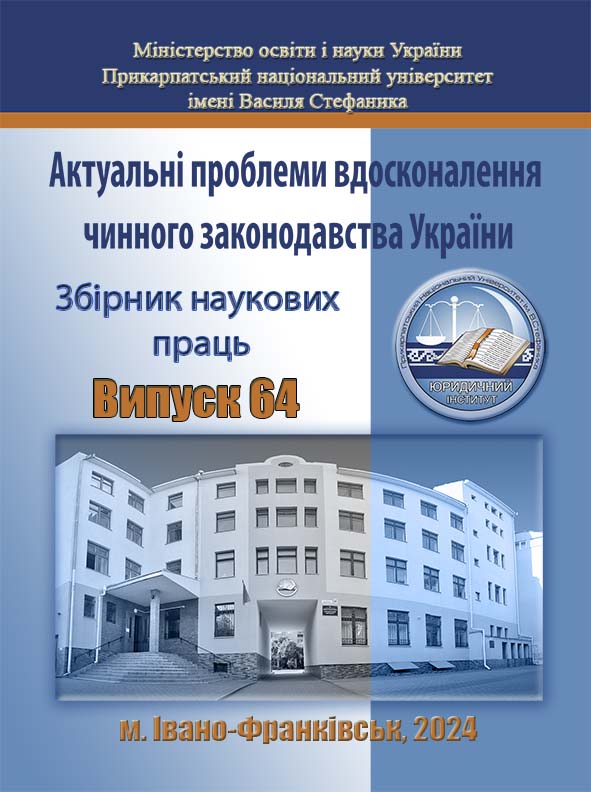The contract as a legal basis for the distribution of intellectual property rights to official works
DOI:
https://doi.org/10.15330/apiclu.64.80-93Keywords:
copyright, contract, official work, author’s property rights, gig contract, computer programAbstract
Relying on thorough scientific research in the field of contract law of Academician Volodymyr Luts, the author examines the contract as a legal basis for the distribution of intellectual property rights to official works.
The content of the article is devoted to the analysis of legislative norms regarding the legal regulation of the distribution of property copyrights for a work created in connection with the performance of official duties or an employer’s assignment (official work). The author analyzed the changes in the legal regulation of the distribution of property rights to the official work in connection with the adoption of the new Law of Ukraine «On Copyright and Related Rights», as well as changes and additions to the Civil Code. The author draws attention to the impracticality of the legislative approach, in which norms identical in content are duplicated in the Civil Code and in special laws. General provisions on intellectual property rights should be left in the Civil Code, and «details» should be regulated by special laws.
Based on a comprehensive analysis of the current legislation in this area, the author concludes that it is appropriate to recognize the employer’s property rights to a computer program created by an employee, which corresponds to European practice. However, it is impractical to apply such an approach to all copyright objects, without exception, created in connection with the performance of official duties or the employer’s assignment. The author substantiates the expediency of the legal approach, according to which the property rights of intellectual property to a work created in connection with the performance of an employment contract (contract) belong to the employee who created this work and to the legal entity or natural person where or for whom he works, jointly, unless otherwise established by contract or law. This approach corresponds to the interests of the employee whose creative work created the work. And the contractual regulation of the distribution of property copyrights for the official work allows balancing the interests of both parties: the employee and the employer.
The nature of the contract as a legal basis for the distribution of intellectual property rights to a service work is analyzed.


